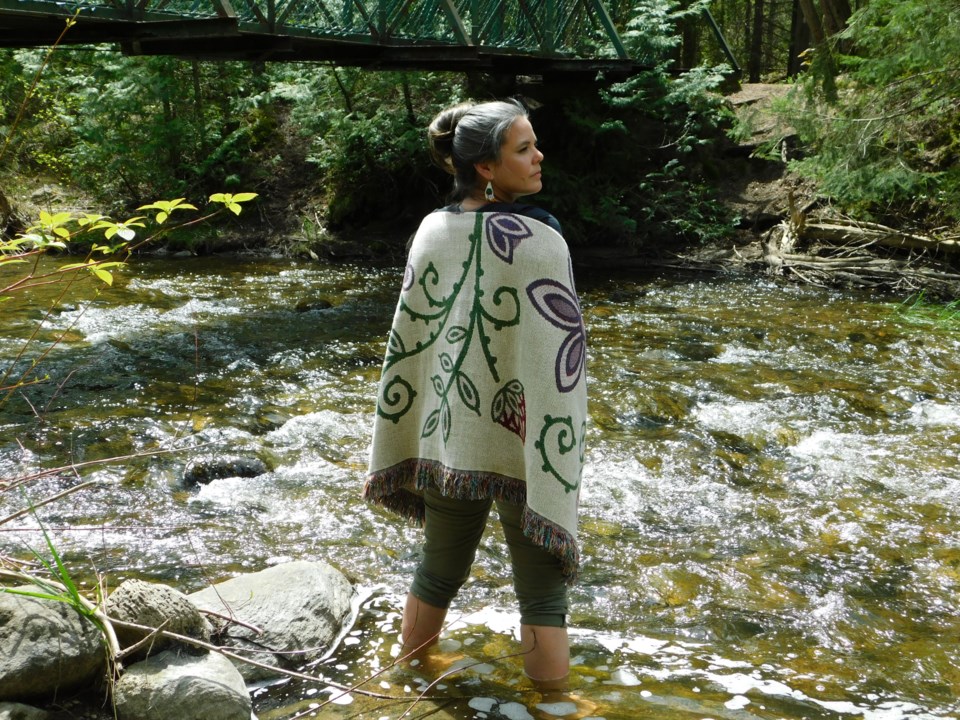Jillian Morris is Kanien’kehá:ka, turtle clan and band member of Six Nations of the Grand River Territory now living in Collingwood, where she currently serves as the town's poet laureate. She will be sharing stories and experience passed down through the oral traditions of Kanien’kehá:ka culture in her regular column, entitled Ka’nikonhrí:io, (The Good Mind) published on CollingwoodToday.ca.
*****
Shé:kon sewakwé:kon, greetings all. It has been a couple of months.
July brought some challenges. The Pope’s visit stirred up difficult feelings.
Still, I am grateful for the retrospection it brought about.
Routinely, I am reminded that decolonizing is daily work. The years of conditioned and institutionalized thinking and understanding still presents itself in all facets of my life. In my busyness, it can go unrecognized.
As interviews or discussions are wrapping up, I may get asked what final thoughts I want to leave listeners with. My answer is often, 'slow it down.' I encourage mindfulness and intention with each step. I apply it to collaborations and partnerships – spend time on relationship and trust building and let the destination be the celebration of that shared walk. Return via the same route. Reengage with obstacles overcome. That celebration becomes sweeter when we reflect on the lessons learned.
I had a friend and elder once tell me that we tend to repeat the messages that we ourselves need to be reminded of.
True.
I never pursued a community leadership role. I’m certain those who knew me as a young person are in disbelief that I have a public presence. Me too. Now that I am here, I find further relevance in our traditional stories. Ones I’ve heard over and over still offer new learning.
Analogy and abstract concepts are prominent in the stories and legends passed down. This method promotes critical, creative, and analytical thinking.
The stories are ageless and universal.
The story of "Why the Cornhusk Doll does not Have a Face," has been one of my guides recently.
Corn knows that she has an important purpose. She offers sustenance. That is enough and yet she wants to give beyond the harvest.
Corn loves how the children run up and down the rows, laughter among the chase – their joy spreads like seeds on the wind.
A doll made of her dried husks will encourage this playful nature into the cold months of winter. She begins creating. With much care, she works until completion.
The doll is presented to the children. Expressions of gratitude and praise come as the doll is passed among them. Many remark on the doll’s beauty – gorgeous features. They do not put her down until dark is upon them.
The next morning the doll cannot be found. She has ventured off to the lake. Curiosity entices her to gaze upon her own reflection. She is as beautiful as they say.
The Great Spirit visited the doll to remind her of her purpose. He tells her of the children’s sadness since she left. She bows her head and promises to return.
The children delight and the doll hears more and more of her beauty. As the days pass, the doll can resist no longer. She leaves the children again to admire herself on the water’s surface. Vanity has taken hold. Not able to tear herself away, she falls asleep at the water’s edge.
The Great Spirit returns, disappointed that Cornhusk Doll ignored his warning. She will learn what is needed upon her awakening.
Cornhusk Doll wakes and immediately she moves to look upon herself. She gasps as she realizes her face has disappeared.
She is sure the children will no longer love her. They will be afraid. They will not play with her.
Still, she returns.
The children are only momentarily affected by her new appearance. To Cornhusk Doll’s surprise, they still say she is beautiful.
She remains with the children for the rest of her days.
Whether I wanted this platform or not, I have accepted it and must now use it responsibly. I am required to listen and be accountable to my community. Missteps are inevitable. I can dwell on them or back up and try again. My ego has no place in this work – it’s not about me.
Skén:nen, peace.



